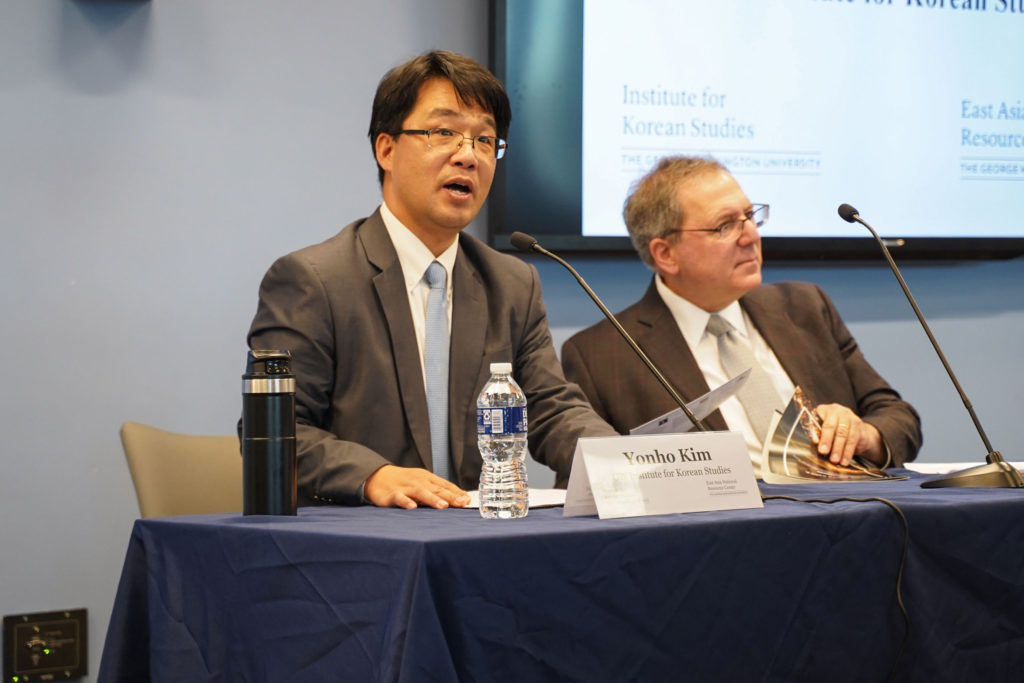A New York Times correspondent discussed North Korea’s nuclear weapons program at the Elliott School of International Affairs Friday.
David Sanger, a Times national security correspondent who has been covering North Korea since 1988, talked about U.S. negotiations with North Korea about nuclear weapons under President Donald Trump’s administration. The event, part of the Korea Policy Forum, was co-hosted by the East Asia National Resource Center and the GW Institute for Korean Studies and moderated by GWIKS Associate Director Yonho Kim.
Sanger said the North Korean nuclear program is a “slow-running drama” playing since President Bill Clinton took office in 1993. He said the recent exchange of insults between the U.S. and North Korean leaders – in which Trump called North Korean leader Kim Jong-Un “Rocket Man” and North Korean media responded by calling Trump a “dotard” – is a reminder that covering North Korea is like being “on a spin cycle.”
Sanger said the “cycle” starts with North Korean leaders building up the country’s weapons capabilities, followed by the U.S. leaders claiming that “all options are on the table” to address the issue. After the two sides exchange insults, North Korean leaders threaten to conduct weapon tests, he said.
After negotiations and a de-escalation of tensions, the two countries repeat the cycle again, Sanger said.
“Our assumption is that the ever-increasing sanctions are somehow going to change North Korean behaviors – that assumption simply doesn’t stand up,” he said. “It doesn’t stand up to the empirical evidence across our presidents.”
Sanger said North Korean leaders have achieved their goal of carving out a position of international power using its nuclear weapons program. Without its arsenal, North Korea would be an afterthought for U.S. policymakers, and they would not take the country’s ruler as seriously as they do, he said.
“Instead, with nuclear weapons, he’s actually met with the president three times, which is better than the president of Ukraine in recent times,” he said.
Sanger said President Trump was not “exclusively prepared” for his historic meeting with Kim last June in Singapore and made the “classic mistake” of using loaded language he didn’t fully understand. He added the Trump administration’s North Korea negotiation team is smaller than previous administrations, and the negotiators are more secretive and cautious about talking to reporters.
“You will find the career foreign service, special envoys and others are cautious about how much they want to say in public, for fear that the president’s tweet the next day would undercut them,” Sanger said.
He added that North Korea’s actions are based on the model Pakistan pioneered when it developed nuclear weapons in the 1970s. The South Asian country fell under U.S. sanctions for decades before agreeing to cooperate in U.S. anti-terrorism efforts after the 9/11 attacks in exchange for sanctions relief.
“If you are Kim Jong-Un, you look at the Pakistan example,” Sanger said. “If you waited out long enough, if you get the world accustomed to the fact that you have this arsenal, if you don’t overtly threaten to use the arsenal against your neighbors, eventually, the world just accepts the fact.”





